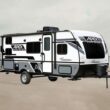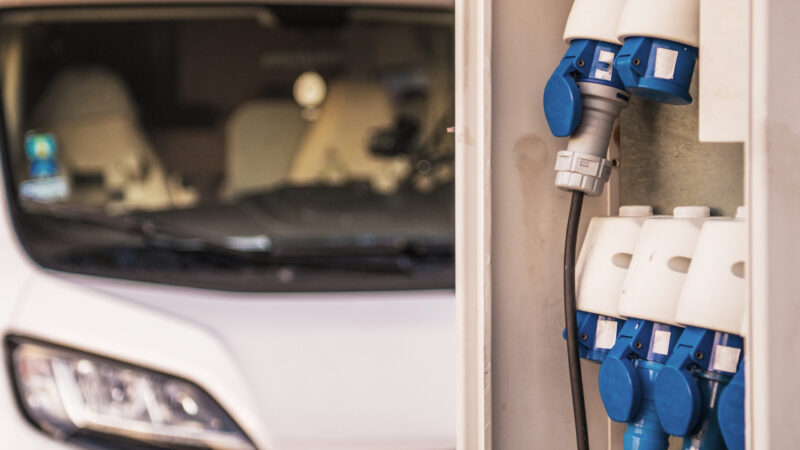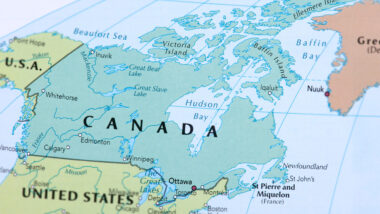Table of Contents Show
A fellow RVer experienced a nightmarish situation recently while staying at a Harvest Host location. A quick overnight stop while adventuring resulted in a costly repair bill.
If you’re a Harvest Host member or considering becoming one, you must protect yourself. We’d hate for your travel plans to get derailed.
So what happened, and what can you do to keep you and your rig safe? Let’s find out!
What Is Harvest Hosts?
Harvest Hosts is a membership for travelers, often those in RVs and other self-contained vehicles. Members can book overnight stays at host locations, typically wineries, breweries, farms, or museums.
The expectation is that the member supports the host by making a purchase. When staying at a winery or brewery, it could be something as simple as a bottle of wine or a drink. It’s a win-win for both the traveler and the host location.
The small business gets some extra customers, and the members get a place to stay and whatever they purchase.
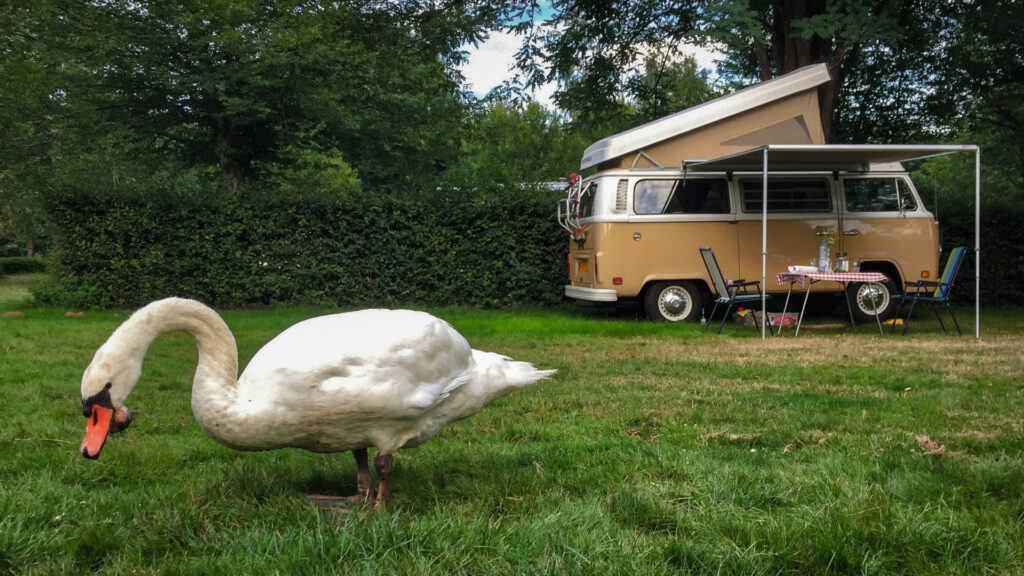
RV Gets Fried During Overnight Stop
Most Harvest Host locations provide the bare minimum when it comes to amenities. Typically, there’s not much more than a spot to park. However, some sites go above and beyond and offer a place to plug in your RV.
Unfortunately for our fellow traveler, he was the first to plug into a recently installed power box at this host site.
The second he plugged his rig into the outlet, it fried several items in his RV. Whoever installed the outlet wired it for 220 volts instead of 110. The camper stated it fried a Keurig, the control board on his washer and dryer, and destroyed his power cord.
Who Is Responsible for the Damage?
Thankfully, in this situation, the host took responsibility. They told the traveler that they would cover the cost of the damages. However, it’s worth noting that fine print for Harvest Hosts releases Harvest Hosts as a company from any blame in these situations.
Their policy states explicitly, “Each Member and Host remain solely liable for any interaction with any users of the Services, and Members and Hosts agree and acknowledge that any insurance or other coverage for any property damage remains solely the responsibility of the Member or Host and their insurance providers.”
While this situation ended fine for the traveler, it could have been much worse. Had the host not been so generous, it could have resulted in a trip to small claims court. Each side would have had to state their case, and a judge would have ruled on who was responsible.
Keep in Mind: Have you heard? A couple of legislative bills in the Sunshine State are trying to grant campground operators with immunity if you get hurt at the campsite.
Should You Worry About Power at Harvest Hosts?
You typically have nothing to worry about when staying at Harvest Hosts sites. We’ve stayed at these sites and never had an issue. This unfortunate situation was simply a fluke.
However, that doesn’t mean you shouldn’t do all you can to protect yourself and your RV.
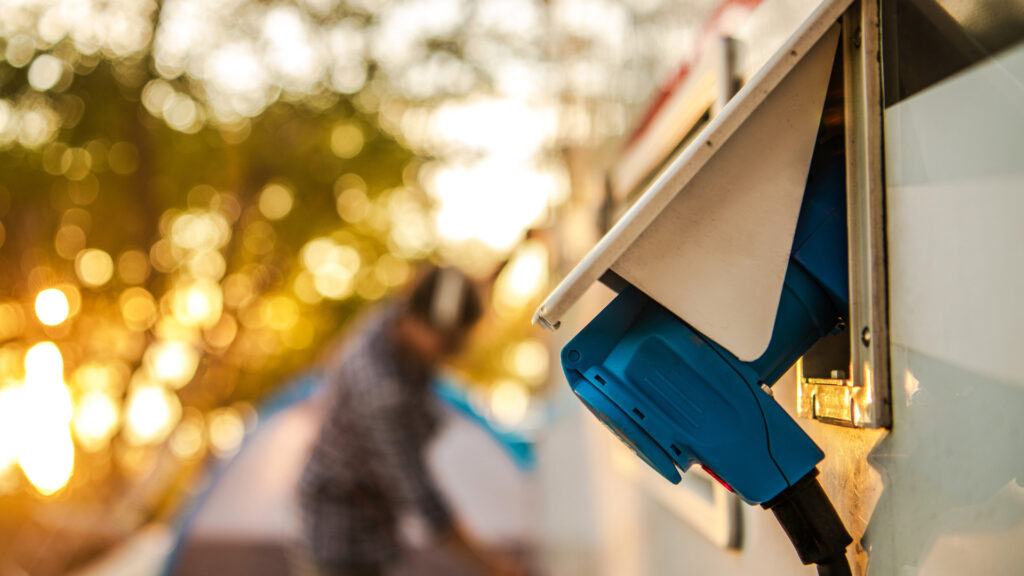
Ways to Protect Your RV Electrical System
You can do several things to protect your RV’s electrical system. Let’s look at what you can do while staying at Harvest Host and other sites.
Be Self-Sufficient
When staying at Harvest Hosts and other sites, you should be as self-sufficient as possible. This may require you to upgrade your electrical system or use a generator. Because these locations are all different, it’s hard to know what to expect.
When you’re self-sufficient, you won’t have to rely on the host to provide more than a spot to park for the night. If something goes wrong, you only have yourself or your equipment to blame. It won’t take away the sting, but it at least helps you avoid issues with someone else.
Manage Your Power
One mistake that many RVers make is overloading a connection. This typically occurs when RVers try running power-hungry appliances. These include coffee makers, air conditioning units, and space heaters.
Be mindful of the connection you plug into. If you’re plugging your 50-amp RV into a 30-amp outlet, you’ll trip the breaker if you try to use too much power. However, if the breaker fails, it could cause components to melt or cause a fire.
Use an EMS Surge Protector
You should never plug your RV into an outlet without a surge protector. However, using an Electrical Management System (EMS) Surge Protector provides more protection for your RV.
These devices test the connection and protect it from surges and low-voltage events. A voltage drop can be equally damaging to electronics as an unexpected surge.
Unfortunately, an EMS surge protector will cost a bit more. However, the increased protection they provide is worth it. We never plug our rig into any outlet without using one. These events can occur on a perfectly healthy connection and do tremendous damage. For us, it’s not worth the risk.
Keep in Mind: If you’re in need of a surge protector, look no further! This is the Best RV Surge Protector on the Market
Keep Up With Maintenance and Inspections
You should do maintenance and inspections regularly. This can help you to catch potential issues as soon as possible. We’ve heard of numerous RVers experiencing problems they could have avoided if they had kept up with the maintenance.
Find your owner’s manual. The manufacturer likely included their suggested maintenance schedule. This is a great place to start. However, you should inspect your rig often to ensure everything remains in good working order.
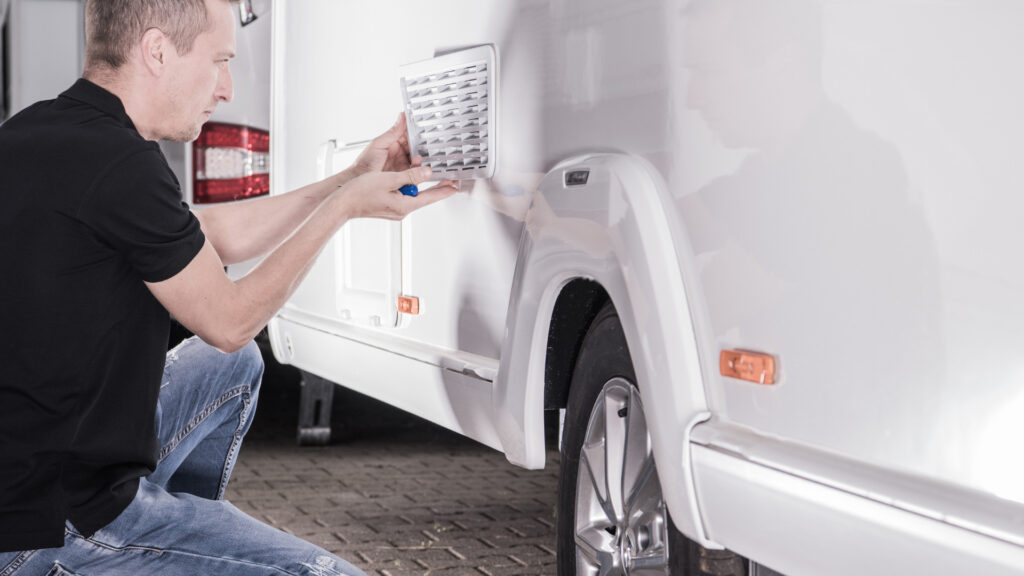
Check Your Electrical Connections
One mistake that many RVers make is not double-checking their electrical connections.
You must get a solid connection between your plug and the outlet. If not, it could generate heat and cause a hazardous situation.
You should clean the prong on your electrical cord from time to time with a contact cleaner and a wire brush. This helps prevent any gunk or build-up from causing issues down the road. When not using your power cable, store it out of the elements.
Sometimes Accidents Happens
This is an excellent example of how unpredictable RVing can be. Luckily, the two parties were able to resolve the situation.
It proves good people still take responsibility when things go wrong. This is a gentle reminder to be careful when plugging in your rig. Have you encountered a Harvest Host that offers power?


